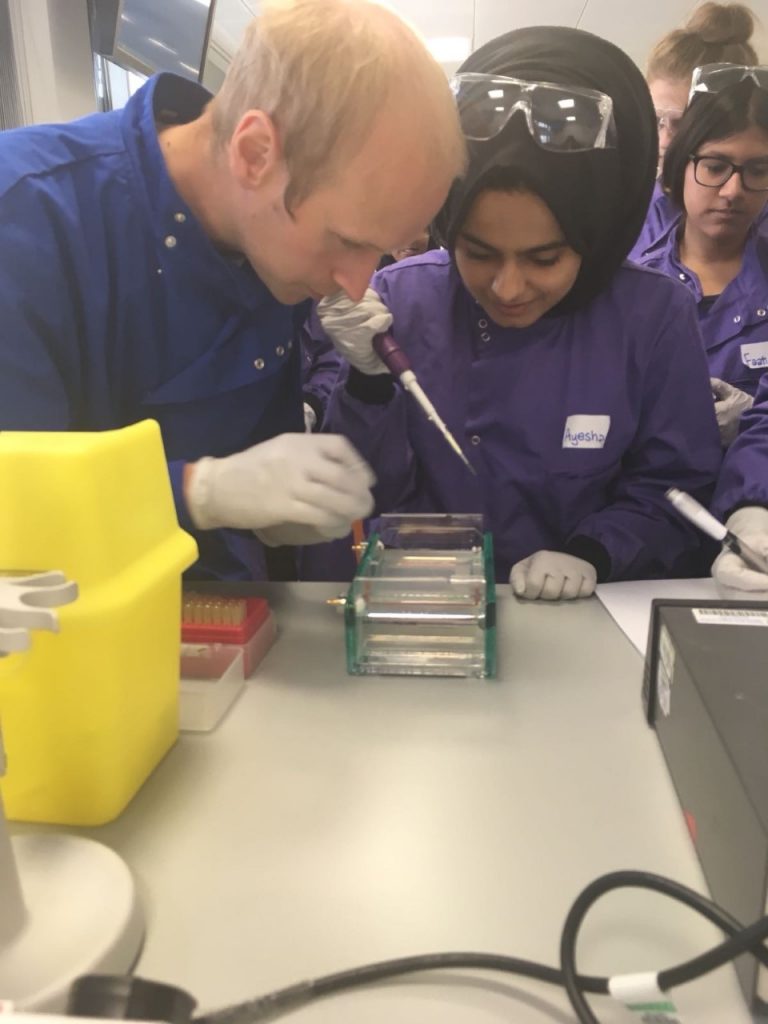My Laboratory Experience
By Ekpreet Sahota 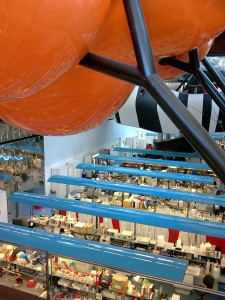
Gaining experience in a laboratory is a big part of any Biomedical degree. The main goal of the degree is to equip you with the knowledge that will guide you towards a career within the scientific field. A research scientist is one of the main roles within this field, and lab experience at university will provide you with the fundamental knowledge and skills you will need for this role. However, keep in mind that the skills gained from lab work are highly transferable, so your options for future careers are not limited!
In this blog, I will be telling you more about my lab experience during my first two years at university.
Firstly, what was the structure of a typical ‘lab day’?
I would be in the lab one day out of the week, from 9am – 5pm. Lab day was definitely the longest and most demanding day out of the whole week – but it was also the most fun. We were put into groups of six at the beginning of the year, and these were the groups we would work with for the rest of the year on our lab project. As part of Imperial’s flipped learning teaching method (more about this on my ‘Biomedicine Lectures’ blog) we were provided with online reading material in preparation for lab days. It would take me around an hour to go through the material and make notes. At the start of a lab day, everyone would complete a multiple-choice quiz for the teacher to see how much we learned. The rest of the day would then be spent working on lab techniques and our projects.
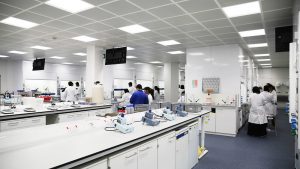
Year 1
In my first year, the two main objectives were to:
- Learn how to use key biomedical techniques which investigated levels of protein expression, gene expression, and cell death.
- Develop a hypothesis and research project, and put the biomedical techniques learned into practice.
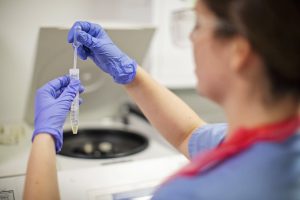
The first term (up until Christmas) was spent learning how to use these key biomedical techniques. The online material included the theory behind techniques such as PCR, cell viability tests, and culturing cells. It also included the materials and procedures, and how to interpret the results. Some of these techniques could be quite tedious – but they were my favourite ones. What was great about this term is that we were just practicing and there were no real consequences if we messed anything up!
Towards the end of the first term was when the real group work started. We were tasked with developing a research project that investigated the links between stress and cancer. We were provided with some background research to help us create a hypothesis for our project. This also involved us reading additional biomedical research papers that would support the basis of our hypothesis. We then planned the experiments we would conduct and which techniques we would use. Once the teachers approved our plans, we were able to begin working on the project in the second term, up until the end of the academic year. This was quite exciting – we were working with actual breast cancer cells, state of the art equipment and we all thought we would be making big scientific breakthroughs. We didn’t actually, which may seem disappointing, but it often takes several months or years to make major scientific breakthroughs. In your first year, as with many other science degrees, you are unlikely to get any meaningful results out of research projects. Nonetheless, the experience you gain from working in a lab is incredibly valuable for developing your research skills.
Year 2
This was the year I realised I really had to step up my performance in the lab.
Similar to my first year, the objectives for my second year were to:
- Learn advanced biomedical research techniques.
- Develop a hypothesis and research project.
This year we were put into new groups of six. Unlike the year before, we started developing a hypothesis for a new research project on the first week of the year! Our project focused on using the CRISPR technique to investigate which genes, when mutated, may be the cause of chronic kidney disease. CRISPR was something I had heard about before, but I never would have thought a (relatively inexperienced) second year biomedical student would be able to use such an advanced technique! This definitely got everyone excited about their research projects. The online material this year went into the theory behind CRISPR, and taught us the very long procedure on how to use it. This year we would finish up our work in the lab an hour early, and the whole class would meet in the lecture theatre where each week a different group would present the work they had done so far.
What did we do with all of this lab work?
At the end of the year we would write a report in the style of an academic research paper based on our research project. We spent so long looking at actual published research papers that we were all quite familiar with what these reports should look like! Nonetheless, we were still provided with a very thorough guide on how to write these reports and a breakdown of the different sections required.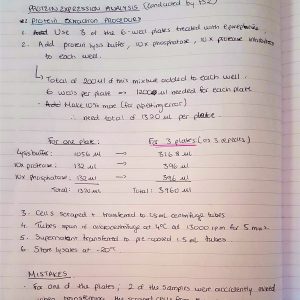
We also had a lab book that we would write in every week to record what we had done – this is something that even academic researchers do! This would include the aim and schedule for the day, the experiments conducted including procedures, results, conclusions and troubleshooting any problems. This lab book was very important to us as it was the only way for us to record everything we would need in preparation for our final report.
The ups and downs of lab work…
Working in a real biomedical research lab is something that no one really gets to experience until they get to university. From what I observed, this is the place many people realised that research is the type of work that they want to do in the future, while others realised it isn’t for them. This experience will definitely be critical in guiding you towards your future career.
You will certainly need to learn how to become patient and resilient. Experiments don’t always work the first time around. Many things can go wrong from contamination of your cells, to missing a step in the procedure, or even spilling something! Lab work is also quite unpredictable – sometimes you won’t get the result you wanted, even after several repeats. You learn to accept that your hypothesis may not have been accurate which is all a part of science! You are there to learn – you will make mistakes, but learning from them will shape you into a fantastic biomedical scientist.
In almost any biom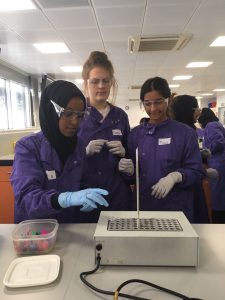 edical research lab you will be working in a team, whether you’re a student or an established scientist. This was one of the best parts for me. As mentioned before, lab days were one of the longest and tiring days – but it’s made all the more fun when you’re working with other people! You go through all of the same struggles and accomplishments as each other. Over time, you discover each other’s strengths and weaknesses, and you realise that lab work really does require a team effort. Sometimes there may be disagreements on how something should be done, but you learn to effectively listen to everyone, build on each other’s points, and incorporate these ideas into the team’s plan where possible. And I definitely made some of my closest friends through labs!
edical research lab you will be working in a team, whether you’re a student or an established scientist. This was one of the best parts for me. As mentioned before, lab days were one of the longest and tiring days – but it’s made all the more fun when you’re working with other people! You go through all of the same struggles and accomplishments as each other. Over time, you discover each other’s strengths and weaknesses, and you realise that lab work really does require a team effort. Sometimes there may be disagreements on how something should be done, but you learn to effectively listen to everyone, build on each other’s points, and incorporate these ideas into the team’s plan where possible. And I definitely made some of my closest friends through labs!
All the skills learned from labs will prepare you for the more independent research projects you may do in your final year. At Imperial, everyone put these skills into practice on placements. Most people chose to do lab-based placements working with a group of real research teams on their current projects either at the university or in external companies. I chose a different route and decided to do a work-based placement – which is why I’m here at Centre of the Cell! As mentioned previously, the skills gained from labs are highly transferable, and I have implemented many of them during my time here. I may not be testing for proteins, but I have to effectively plan my schedule for the week so that I meet deadlines, find the best way to conduct research and identify good sources of information, and I can write reports/summaries in a clear-structured manner that are easy for others to follow!
RECAP: The skills you can expect to learn.
How to…
- Plan, conduct and analyse your own experiments
- Learn key biomedical techniques and how to maintain a sterile working environment
- Use state of the art biomedical research equipment and software
- Properly source and interpret biomedical research papers
- Present your laboratory work in the form of an academic research paper
- Effectively communicate and work with others
- Self-evaluate your performance and work on areas for improvement
So this is what my laboratory experience was like at university!
